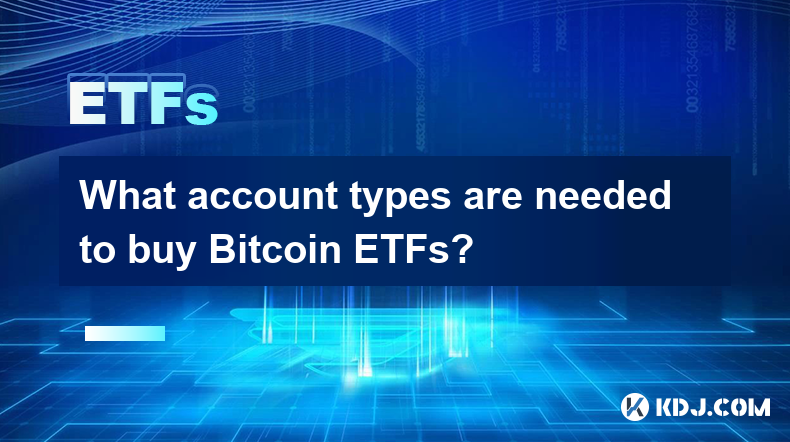-
 Bitcoin
Bitcoin $83,978.2329
-0.95% -
 Ethereum
Ethereum $1,574.6532
-2.89% -
 Tether USDt
Tether USDt $1.0000
0.01% -
 XRP
XRP $2.0799
-2.09% -
 BNB
BNB $582.0978
-0.45% -
 Solana
Solana $126.8891
-1.65% -
 USDC
USDC $0.9999
0.01% -
 TRON
TRON $0.2520
1.40% -
 Dogecoin
Dogecoin $0.1531
-1.65% -
 Cardano
Cardano $0.6042
-2.72% -
 UNUS SED LEO
UNUS SED LEO $9.4073
0.49% -
 Chainlink
Chainlink $12.1781
-1.60% -
 Avalanche
Avalanche $18.8470
-3.21% -
 Stellar
Stellar $0.2342
-2.01% -
 Toncoin
Toncoin $2.8527
-3.56% -
 Shiba Inu
Shiba Inu $0.0...01173
-1.28% -
 Sui
Sui $2.0691
-3.34% -
 Hedera
Hedera $0.1571
-2.40% -
 Bitcoin Cash
Bitcoin Cash $319.5878
-1.46% -
 Litecoin
Litecoin $74.6635
-1.14% -
 Polkadot
Polkadot $3.5374
-1.49% -
 Dai
Dai $1.0001
0.01% -
 Hyperliquid
Hyperliquid $15.5398
-0.20% -
 Bitget Token
Bitget Token $4.3223
0.51% -
 Ethena USDe
Ethena USDe $0.9992
0.01% -
 Pi
Pi $0.6040
-9.29% -
 Monero
Monero $217.4800
1.03% -
 Uniswap
Uniswap $5.1331
-2.98% -
 OKB
OKB $51.4640
-0.05% -
 Pepe
Pepe $0.0...07120
0.41%
What account types are needed to buy Bitcoin ETFs?
To buy Bitcoin ETFs, you need a brokerage account that supports ETF trading, but availability varies by location and brokerage; always check before investing.
Mar 28, 2025 at 10:14 pm

Understanding Brokerage Accounts and Bitcoin ETFs
Buying Bitcoin ETFs requires a brokerage account, but the specific type depends on your location and the brokerage's offerings. It's crucial to understand that not all brokerage accounts support ETF trading, and even fewer currently offer Bitcoin ETFs. You'll need an account that explicitly states it allows trading in exchange-traded funds (ETFs). This is distinct from accounts designed solely for cryptocurrency trading on exchanges like Coinbase or Binance. These exchanges do not directly handle ETF purchases.
Types of Brokerage Accounts for Bitcoin ETF Purchases
Several account types can facilitate Bitcoin ETF purchases, but not all are created equal. The most common is a standard brokerage account. This is generally suitable for most investors, offering access to a wide range of securities, including ETFs. Some brokerages may also offer specialized accounts, such as retirement accounts (IRAs) or taxable brokerage accounts. The ability to buy Bitcoin ETFs within these accounts will depend on the specific brokerage and its regulations.
Standard Brokerage Accounts
Standard brokerage accounts are the most accessible option for purchasing Bitcoin ETFs. These accounts are generally easy to open and require minimal paperwork. They offer flexibility in terms of investment strategies and allow for both buying and selling of ETFs. However, it's vital to check if your chosen brokerage supports Bitcoin ETFs before opening an account. Not all brokerages offer access to all ETFs, and the availability of Bitcoin ETFs is still relatively new.
Retirement Accounts (IRAs) and Bitcoin ETFs
Many investors are interested in including Bitcoin ETFs in their retirement portfolios. Retirement accounts, such as traditional and Roth IRAs, can sometimes be used to purchase Bitcoin ETFs. However, this depends heavily on the specific IRA provider and their rules. Some providers may prohibit the purchase of certain asset classes, including ETFs that track cryptocurrencies. Always check with your IRA provider to verify the permitted investments before attempting to buy Bitcoin ETFs within your retirement account.
Taxable Brokerage Accounts
Taxable brokerage accounts are another option for buying Bitcoin ETFs. These accounts are subject to capital gains taxes on profits, unlike tax-advantaged accounts like IRAs. However, they offer greater flexibility and accessibility than retirement accounts. The ease of buying Bitcoin ETFs in a taxable account depends entirely on the brokerage's support for Bitcoin ETFs and your individual tax situation.
Opening a Brokerage Account for Bitcoin ETF Trading
Opening a brokerage account is typically a straightforward process. Here's a general overview of the steps involved:
- Choose a reputable brokerage that offers Bitcoin ETFs.
- Complete an online application, providing personal information and financial details.
- Verify your identity through document submission (e.g., driver's license, passport).
- Fund your account using a linked bank account or other funding method.
- Once your account is funded and verified, you can search for and purchase Bitcoin ETFs.
Remember that specific requirements may vary depending on the brokerage.
Understanding the Risks of Bitcoin ETFs
While Bitcoin ETFs offer a convenient way to gain exposure to Bitcoin, it's crucial to understand the associated risks. Bitcoin's price is highly volatile, and ETFs tracking Bitcoin will reflect this volatility. Before investing, research the specific ETF you intend to buy, understanding its investment strategy and associated risks. Consider your risk tolerance and only invest what you can afford to lose.
Choosing a Brokerage for Bitcoin ETF Trading
The choice of brokerage is crucial. Look for brokerages with:
- A strong reputation and track record.
- Competitive fees and commissions.
- Robust security measures to protect your assets.
- User-friendly trading platform and mobile app.
- Excellent customer support.
Thoroughly research different brokerages before making a decision.
Factors Affecting Bitcoin ETF Availability
The availability of Bitcoin ETFs varies significantly based on several factors:
- Regulatory approval: Regulatory bodies in different jurisdictions have varying stances on cryptocurrencies, impacting the availability of Bitcoin ETFs.
- Brokerage support: Not all brokerages offer access to all ETFs, and the availability of Bitcoin ETFs is constantly evolving.
- Market demand: The demand for Bitcoin ETFs influences their availability and the number of brokerages offering them.
Fees and Commissions Associated with Bitcoin ETF Trading
Brokerages typically charge fees and commissions for trading ETFs. These fees can vary significantly depending on the brokerage, the type of account, and the trading volume. Some brokerages offer commission-free trading for certain ETFs, but this is not always the case for Bitcoin ETFs. Understanding the fee structure is crucial for managing your investment costs.
Tax Implications of Bitcoin ETF Investments
The tax implications of Bitcoin ETF investments depend on your specific circumstances and the type of account used. Profits from selling Bitcoin ETFs held in taxable accounts are subject to capital gains taxes. However, gains within tax-advantaged accounts like IRAs are generally tax-deferred or tax-free, depending on the type of IRA. Consult a tax professional for personalized advice.
Frequently Asked Questions
Q: Do I need a specific type of account to buy Bitcoin ETFs?
A: You need a brokerage account that explicitly supports ETF trading, and specifically, Bitcoin ETFs. Standard brokerage accounts are typically sufficient, but the availability depends on the brokerage.
Q: Can I buy Bitcoin ETFs in a retirement account?
A: Potentially, but it depends on the specific IRA provider and their rules regarding cryptocurrency investments. Check with your provider before attempting to purchase.
Q: What are the risks of investing in Bitcoin ETFs?
A: Bitcoin's price volatility is the primary risk. ETFs tracking Bitcoin will mirror this volatility, meaning potential for significant losses. Always research and understand the risks before investing.
Q: How do I choose a suitable brokerage for Bitcoin ETF trading?
A: Consider factors like reputation, fees, security, platform usability, and customer support. Thorough research is crucial before selecting a brokerage.
Q: What are the tax implications of Bitcoin ETF investments?
A: Tax implications depend on the account type (taxable or tax-advantaged) and your specific tax situation. Profits from taxable accounts are subject to capital gains taxes. Consult a tax professional.
Disclaimer:info@kdj.com
The information provided is not trading advice. kdj.com does not assume any responsibility for any investments made based on the information provided in this article. Cryptocurrencies are highly volatile and it is highly recommended that you invest with caution after thorough research!
If you believe that the content used on this website infringes your copyright, please contact us immediately (info@kdj.com) and we will delete it promptly.
- Panama City Council Votes to Allow Citizens to Pay Taxes Using Bitcoin and Other Cryptocurrencies
- 2025-04-17 01:35:13
- Bitcoin Dominance Reaches 62.2% as Macroeconomic Headwinds Batter Digital Assets
- 2025-04-17 01:35:13
- Bitcoin (BTC) Centered on $84,000 at the April 16 Wall Street Open Amid Hopes That a Weak US Dollar Would Fuel a Bull Market Comeback
- 2025-04-17 01:30:13
- Ethereum Is Bitcoin's True Vision
- 2025-04-17 01:30:13
- Bitcoin Design Community Announces Designathon 2025, a Two-Week Global Online Event Aimed at Transforming the User Experience of Bitcoin
- 2025-04-17 01:25:14
- BNB ecosystem completes another quarterly burn, incinerating tokens worth nearly $1M
- 2025-04-17 01:25:14
Related knowledge

What is the difference in returns between long-term holding of a Bitcoin ETF and holding Bitcoin directly?
Apr 09,2025 at 04:15am
When considering the difference in returns between long-term holding of a Bitcoin ETF and holding Bitcoin directly, it's essential to understand the nuances and factors that affect each investment option. Both approaches have their unique advantages and potential drawbacks, which can significantly impact the overall returns over time. Understanding Bitc...

How is the "roll cost" of a futures Bitcoin ETF generated?
Apr 08,2025 at 01:22pm
The 'roll cost' of a futures Bitcoin ETF is a critical concept for investors to understand, as it directly impacts the performance of the ETF. In this article, we will delve into the mechanics of how the roll cost is generated, exploring the underlying processes and factors that contribute to this cost. Understanding Futures ContractsFutures contracts a...

How can the premium or discount of a Bitcoin ETF be narrowed through an arbitrage mechanism?
Apr 09,2025 at 12:07am
Arbitrage mechanisms play a crucial role in narrowing the premium or discount of a Bitcoin Exchange Traded Fund (ETF). Understanding how these mechanisms work can provide valuable insights into the dynamics of Bitcoin ETFs and their relationship with the underlying asset. This article will delve into the specifics of how arbitrage can be used to align t...

What factors affect the bid-ask spread of a Bitcoin ETF?
Apr 08,2025 at 08:50pm
The bid-ask spread of a Bitcoin Exchange Traded Fund (ETF) is a critical metric that investors and traders closely monitor. It represents the difference between the highest price a buyer is willing to pay (bid) and the lowest price a seller is willing to accept (ask). Several factors influence this spread, and understanding them can help investors make ...

How is the seed capital of a Bitcoin ETF used?
Apr 10,2025 at 02:15pm
The seed capital of a Bitcoin ETF plays a crucial role in the establishment and operation of the fund. This initial investment is used to create the fund's underlying assets, manage operational costs, and ensure the ETF can start trading on an exchange. Understanding how this seed capital is utilized provides insight into the mechanics of Bitcoin ETFs a...

What is the difference between "physically backed" and "synthetic" Bitcoin ETFs in terms of holding assets?
Apr 10,2025 at 04:56pm
Bitcoin Exchange Traded Funds (ETFs) have become a popular way for investors to gain exposure to the cryptocurrency market without directly owning the underlying asset. There are two primary types of Bitcoin ETFs: physically backed and synthetic. Understanding the differences between these two types, particularly in terms of how they hold assets, is cru...

What is the difference in returns between long-term holding of a Bitcoin ETF and holding Bitcoin directly?
Apr 09,2025 at 04:15am
When considering the difference in returns between long-term holding of a Bitcoin ETF and holding Bitcoin directly, it's essential to understand the nuances and factors that affect each investment option. Both approaches have their unique advantages and potential drawbacks, which can significantly impact the overall returns over time. Understanding Bitc...

How is the "roll cost" of a futures Bitcoin ETF generated?
Apr 08,2025 at 01:22pm
The 'roll cost' of a futures Bitcoin ETF is a critical concept for investors to understand, as it directly impacts the performance of the ETF. In this article, we will delve into the mechanics of how the roll cost is generated, exploring the underlying processes and factors that contribute to this cost. Understanding Futures ContractsFutures contracts a...

How can the premium or discount of a Bitcoin ETF be narrowed through an arbitrage mechanism?
Apr 09,2025 at 12:07am
Arbitrage mechanisms play a crucial role in narrowing the premium or discount of a Bitcoin Exchange Traded Fund (ETF). Understanding how these mechanisms work can provide valuable insights into the dynamics of Bitcoin ETFs and their relationship with the underlying asset. This article will delve into the specifics of how arbitrage can be used to align t...

What factors affect the bid-ask spread of a Bitcoin ETF?
Apr 08,2025 at 08:50pm
The bid-ask spread of a Bitcoin Exchange Traded Fund (ETF) is a critical metric that investors and traders closely monitor. It represents the difference between the highest price a buyer is willing to pay (bid) and the lowest price a seller is willing to accept (ask). Several factors influence this spread, and understanding them can help investors make ...

How is the seed capital of a Bitcoin ETF used?
Apr 10,2025 at 02:15pm
The seed capital of a Bitcoin ETF plays a crucial role in the establishment and operation of the fund. This initial investment is used to create the fund's underlying assets, manage operational costs, and ensure the ETF can start trading on an exchange. Understanding how this seed capital is utilized provides insight into the mechanics of Bitcoin ETFs a...

What is the difference between "physically backed" and "synthetic" Bitcoin ETFs in terms of holding assets?
Apr 10,2025 at 04:56pm
Bitcoin Exchange Traded Funds (ETFs) have become a popular way for investors to gain exposure to the cryptocurrency market without directly owning the underlying asset. There are two primary types of Bitcoin ETFs: physically backed and synthetic. Understanding the differences between these two types, particularly in terms of how they hold assets, is cru...
See all articles























































































